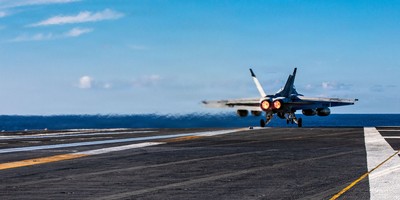WASHINGTON -- President Obama set great expectations for himself on his first European diplomatic trip to test his new get-along-by-going-along foreign policy. And it was a complete success, according to the gushing reports from the news media.

Not everyone agreed with that assessment. Obama certainly proved "that he can work smoothly and productively with a wide range of foreign leaders -- provided that he allows them to set the agenda," remarked the Washington Post's foreign-policy analyst Jackson Diehl.
Obama went to Europe to persuade the major European powers and other countries who make up the world's richest G-20 to pump more money into their financial markets to help pull the global economy out of its recession. They agreed to come up with more than $1 trillion, most of which went into the International Monetary Fund and the World Bank. But they said no to plunging their countries further into debt as he was doing here at home.
German Chancellor Angela Merkel flatly dismissed his bigger spending request, saying, "That is not a bargaining chip." French President Nicolas Sarkozy said his own demands for imposing more regulations over the financial markets were "nonnegotiable."
Then it was on to the NATO summit where Obama hoped to talk the military powers into sending thousands of combat troops to help the United States fight the Taliban terrorists in Afghanistan. He got weak commitments from the NATO alliance and other countries of a mere 5,000, mostly for noncombat roles.
He said he came to Europe to listen and not to lecture. The days when great world leaders like Roosevelt and Churchill sat "in a room with a brandy" and led the Free World against tyranny were over, Obama said. Did he miss his U.S. history classes where FDR, Truman, Churchill, Stalin and a host of other allies joined together to defeat Germany and Japan in World War II?
Recommended
But this is the Age of Obama, a time when we had to "show some element of humility and recognize that we may not always have the best answer."
Well, humility can take you only so far in a still-very-dangerous world where Iran, North Korea and other rogue nations consider humility a sign of weakness and indecision.
While Obama was practicing international humility in Europe, Defense Secretary Robert Gates was unveiling the overhaul (some are calling it a dismantlement) of America's military arsenal, including worrisome cuts in U.S. missile-defense programs.
It was an unfortunate coincidence that Gates was laying out the plan to cut back on U.S. missile testing at a time when North Korea was firing an intercontinental ballistic missile over Japan's airspace and across much of the Pacific Ocean in what their military said was an attempt to put a satellite into orbit. It apparently did not achieve orbit, but the test firing showed that North Korea was inching ever closer to having the capability of hitting our allies and, eventually, the United States.
Congressional lawmakers reacted with alarm this week at the combined news of North Korea's latest provocative action and Obama's planned defense cuts, especially on long-range missile-defense technology.
A bipartisan group of senators, including Joe Lieberman and Jon Kyl, wrote to Obama on Monday to voice their opposition to what they called "deep cuts" in missile and missile-defense programs.
"I cannot believe what I heard today. President Obama is disarming America. Never before has a president so ravaged the military in a time of war," said Oklahoma Sen. James M. Inhofe, a senior member of the Senate Armed Services Committee.
Rep. Trent Franks of Arizona, a member of the House Armed Services Committee, said, "North Korea's launch of a long-range ballistic missile should be a clarion wake-up call to the whole world that this is not the time to diminish our missile-defense budget as proposed by the Obama administration."
There were reports, too, that Iranian missile experts were present at the North Korean missile launch, which Franks said "compounds the threat. As dangerous as North Korea's missile capability is becoming, it should be noted that Iran's missile technology is far advanced than that of North Korea; and if Iran should also gain the nuclear capability now possessed by North Korea, the entire paradigm of world peace would be jeopardized."
More than half-a-dozen members of the House missile-defense caucus hurled similar statements at the White House Monday. Indeed, this was no time to be cutting back on any missile-defense systems that have shown we can destroy incoming enemy missiles with deadly accuracy. We need to continue testing proven and even as yet unproven systems.
Obama made headlines by showing that he could work closely with the Russians on what he hopes will be a new treaty to reduce nuclear weapons between the two superpowers.
But not long after Obama and Russian President Dmitry Medvedev shook hands on the deal, Russia was defending North Korea's right to shoot missiles into orbit for "peaceful" purposes. Sure.
"Is the new president shrewd and pragmatic about using his power at home and abroad -- or too passive, even weak?" the Post's Jackson Diehl asked Sunday. It is a critical question that demands further scrutiny in the weeks and months to come.

























Join the conversation as a VIP Member